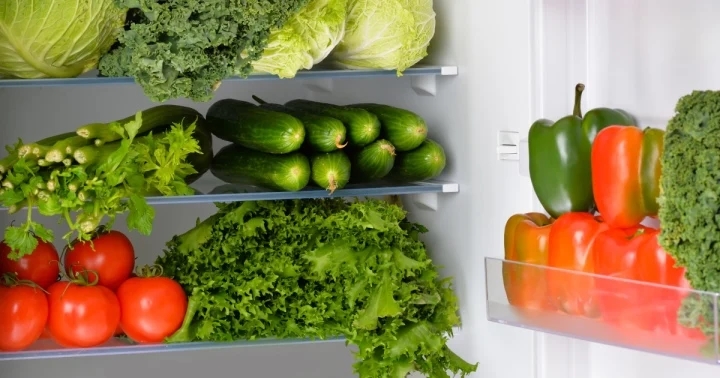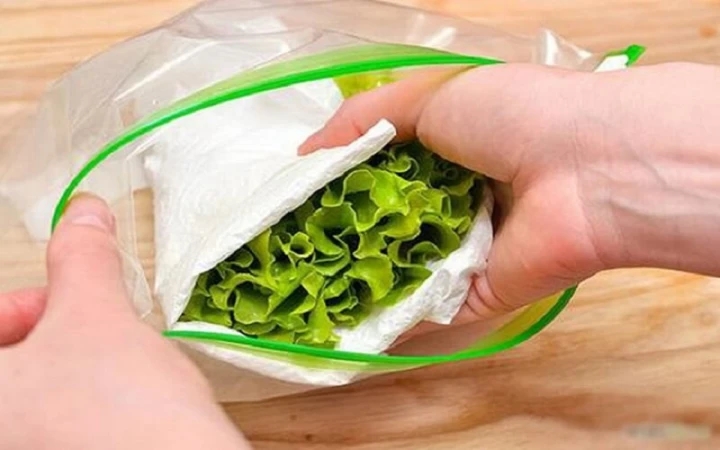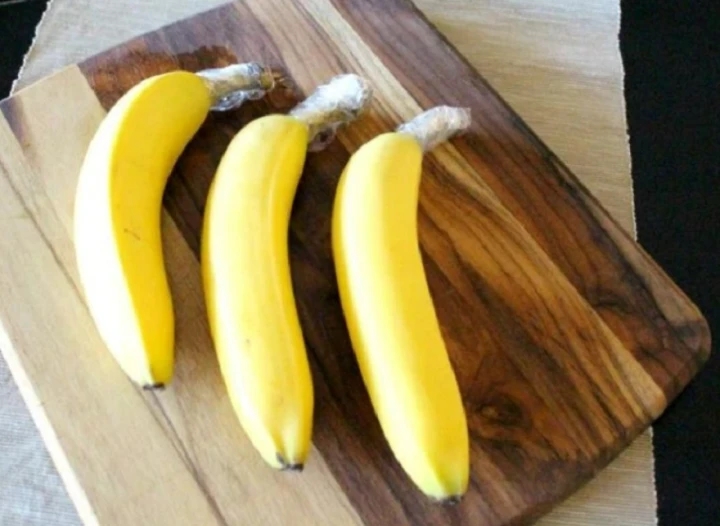Fruits and vegetables are essential in our daily meals, so how can you keep them fresh and delicious for longer if you buy them in large quantities? Some preservation tips below will help you store them for a long time, avoiding food waste.
Do not wash the produce before storing
It may sound strange, but it’s best not to wash fruits and vegetables before storing them in the refrigerator or pantry. If something is dirty, simply wipe it clean with a dry cloth or paper towel. When washing vegetables, we unintentionally remove their natural protective layers, making them susceptible to mold and decay.

Some tips to preserve fresh vegetables in the refrigerator
Remove damaged parts before storing
Before putting vegetables in the refrigerator, we usually drain them and then put them in the cooling compartment. Besides cleaning them, you also need to remove any damaged parts of the vegetables to prevent them from producing ethylene gas, which can cause the vegetables to ripen naturally and easily spoil, contaminating other food items.
Sort the produce before storing
Each type of vegetable has a different storage time, so if you put all of them in one container or bag, they will spoil faster and lose their nutritional value. Especially for vegetables that ripen quickly and produce ethylene gas, the decomposition process will be accelerated, leading to loss of freshness and nutrients. Therefore, before putting them in the refrigerator, you should sort them and wrap them in plastic wrap before storing them.
Use paper for preservation
You can use dry paper towels to wrap vegetables and then place them in the refrigerator. This method can keep the vegetables fresh for at least a week, especially leafy vegetables. Clean the vegetables and put them in a plastic bag, then wrap them tightly with paper towels before placing them in the refrigerator. This method is suitable for preserving celery, coriander, cabbage, etc., helping the vegetables stay fresh and delicious for at least a week.

Paper preservation tips for keeping vegetables fresh
Use specialized produce containers
Using specialized fruit and vegetable containers helps preserve their nutritional value and freshness effectively. They are also easy to use, convenient, and can be reused after being cleaned, saving costs.
Adjust the appropriate temperature
In addition to the above methods, you can adjust the appropriate temperature to store fruits and vegetables. The most suitable storage temperature for produce is around 3 – 9 degrees Celsius. At the same time, nowadays, refrigerators have separate compartments with pre-set temperatures for storing fruits and vegetables. Placing the produce in these specialized compartments will ensure longer freshness.
Some tips for storing fresh produce without a refrigerator
Room temperature preservation: Vegetables should not be stored in a closed container. They will spoil faster under such conditions. Instead, it is best to store them in well-ventilated wooden or plastic containers or simply in any place where they have air to “breathe”.

Preservation tip for bananas using plastic wrap
Banana preservation tip: If you store bananas in the refrigerator, they will quickly turn brown and lose their flavor. It is best to keep them at room temperature and wrap the stems with plastic wrap. Or you can hang the bunch of bananas in a well-ventilated area, away from other ripe fruits. With this trick, they will not bruise and ripen too quickly.
Avocado preservation tip: An unripe avocado should be placed in a thick paper bag or wrapped in newspaper and kept at room temperature until it ripens. After the avocado is ripe, you can put it in a plastic container and store it in the refrigerator.
Potato preservation tip: You should not keep potatoes in a plastic container. Instead, put them in a paper bag. If kept in a cool, well-ventilated place, potatoes can stay fresh for at least 2 weeks. You should not store potatoes in the refrigerator as it may change their taste and texture.
Carrot preservation tip: If you buy carrots but do not use them immediately, avoid washing them as the water can make them spoil quickly. Cut off the leafy part and store the carrots in a basket in a cool place.
Onion preservation tip: Darkness is the best friend of garlic and onions. If there is no dark place inside the house, you can put them in a paper bag with small holes to release gas. With this trick, you can store them anywhere that meets their need for darkness.
Source: VTC.vn































